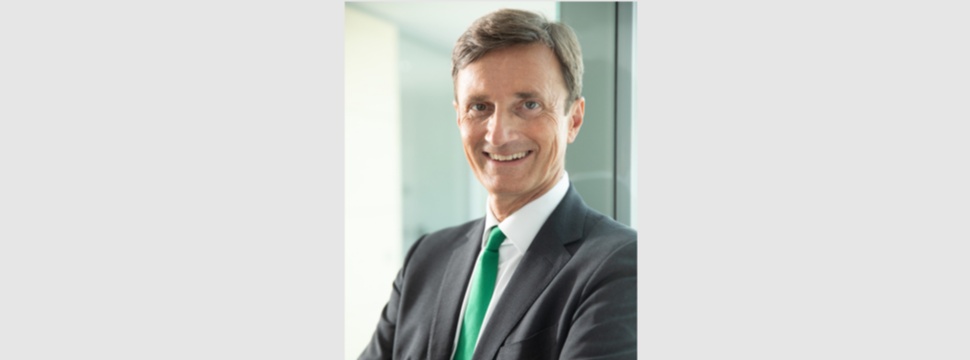Think afresh, act creatively: The Klingele innovation system
News General news
Coping with limited resources, keeping up with rapidly changing technologies and new market requirements – these are the major challenges facing the German economy and therefore also SMEs. Take a look at the ‘Innovation Indicator 2023 to see that Germany ranks tenth in international comparison with 34 industrialised and emerging countries in terms of its capability to generate innovation. Klingele Paper & Packaging Group demonstrates how innovation can be established, practised and advanced even in traditional family businesses. The packaging specialist from Remshalden in the state of Baden-Württemberg has created its very own innovation system, which not only enables new solutions to be developed in its core business of paper and packaging. It also promotes services, processes and new business models. By focusing on four factors – accompany, empower, explore and participate – the mid-sized company aims to fulfil current and future customer requirements, act sustainably, remain competitive, and ultimately secure jobs.

In a globalised world, the potential innovative capacity of SMEs is an opportunity for Germany’s economic success not be underestimated. The diversity and size of medium-sized companies often enable an impressive degree of flexibility that is more difficult to realise than in large corporations. “The preservation of long-standing corporate values as well as the demand for quality and technical expertise form the solid foundation on which our innovations are based”, says Dr Jan Klingele, Managing Partner of Klingele Paper & Packaging Group. “Appreciation for our own history not only strengthens our corporate culture, but also anchors ethical principles. Both enable us to offer products and services at the highest level on an internation market, and to meet the challenges of the 21st century”.
Adaptability and cooperation as keys to success
In times of transformation, rigid structures and fixation on established business models, as is often observed in large companies, can hinder or delay necessary changes. Especially if they struggle to integrate innovative technologies into existing structures. This is why German SMEs need to retain their adaptability. “Klingele has always distinguished itself through its ability to react flexibly to change, to continuously learn and improve, in other words to be innovative: Besides our own technological developments, our approach is to cooperate with faster and more agile start-ups, gain insights, drive forward research projects, and create new business models together”, Dr Jan Klingele explains. Klingele’s networked approach exemplifies how cooperation and networking can promote the exchange of expertise and the development of innovative projects, leverage synergies, and eventually strengthen the innovative power of the entire SME sector.
Innovative rethinking: Klingele’s value creation redefined
While Klingele’s original focus was on product innovation, other types of innovation are now also being driven more intensively. “This helps us identify any innovation potential that may exist before it is pursued further through research and development and with the involvement of our customers or partners”, explains Florian Härer, Innovation Manager at Klingele. In the SME innovation system, the four factors – accompany, empower, explore and participate – are crucial. “As consultants and coaches, we bring our specialist and methodological knowledge to bear to actively support projects for the future both internally and externally (accompany), help improve competence through targeted training around innovation (empower), drive science and technology-oriented innovation development (explore), and we are involved in the search for and evaluation of start-ups to safeguard the future (participate)”, Härer describes the idea. The novel employee culture is a particularly important aspect. “We sensitise our employees and improve their innovation skills through training. This way, we ensure continuous improvement of the project and process landscape. Every one of our employees is also a source of ideas”, Härer asserts.
Close to the customer and their needs
Klingele has independently identified several approaches within this innovation system, such as design thinking and a co-creation arena, which is a creative space where Klingele collaborates with its customers, combines speed, technology and teamwork to develop customised solutions aligned to customer needs. People and their needs always define the starting point. This approach has many advantages for the customer. Härer explains: “Their active involvement forms the basis for our tailored solutions. Together, we develop innovative solutions that lead to a faster time to market, a stronger customer relationship and therefore greater satisfaction. Our innovation development is always holistic and customer-oriented – we always keep a close eye on products, processes, business models and services. This is how we offer our customers the opportunity to stand out in the market and hence generate long-term added value”.
Sustainability as a common goal
Klingele’s growing awareness of sustainability also goes hand in hand with innovation and tradition. “We don’t just see ourselves as a driver of short-term innovation, but increasingly rely on sustainable developments”. Dr Jan Klingele emphasises. The company with its long tradition integrates environmentally friendly practices and social responsibility into its business model. This emphasis not only ensures future viability, but also contributes to establishing a sustainable economy.










